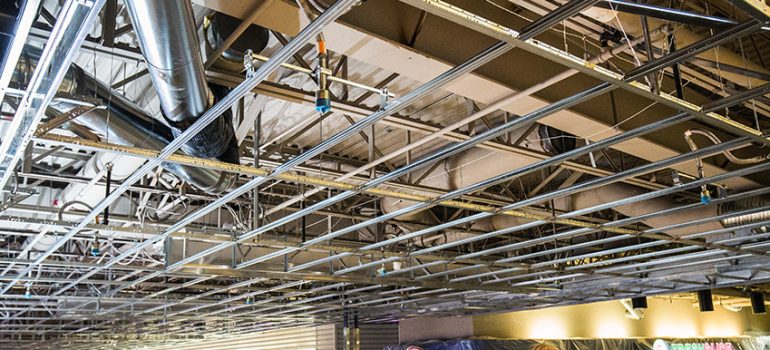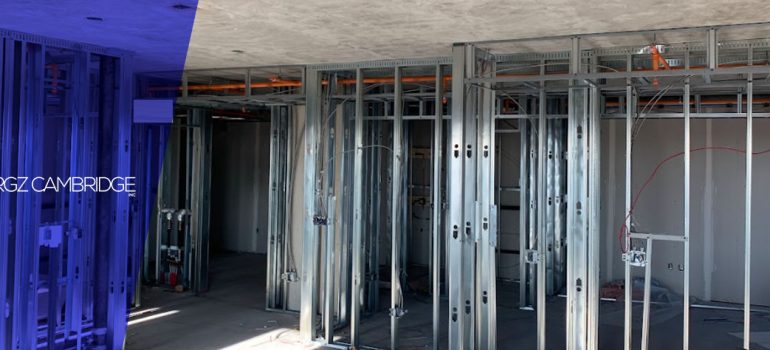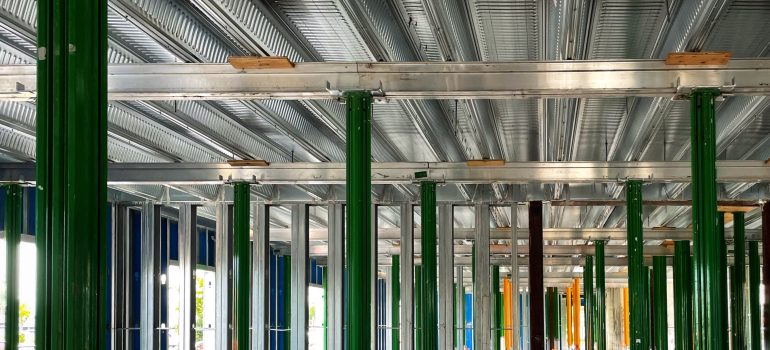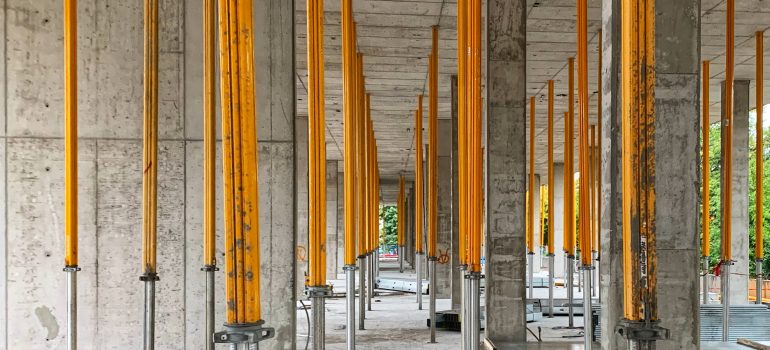Why RGZ Cambridge is Ottawa’s Top Choice for Commercial Steel Stud and Drywall Projects
When it comes to commercial steel stud and drywall projects in Ottawa, finding the right contractor can make all the difference. RGZ Cambridge has built a solid reputation for delivering exceptional results, thanks to their over 20 years of experience and partnership with Cambridge Drywall Services. Whether you’re a business owner, property manager, or contractor, you want a reliable team that can handle projects of any size while maintaining high standards. Let’s explore why RGZ Cambridge stands out in the Ottawa region.
Expertise and Experience You Can Trust
With two decades of experience, RGZ Cambridge has mastered the art of steel stud framing and drywall installation. They’ve worked on a variety of projects, from small office renovations to large commercial developments. Their extensive knowledge of the industry means they can offer expert solutions that meet the unique needs of each client. Whether you need steel stud framing for a new build or drywall for a renovation, their team knows how to deliver quality work efficiently.
In Ottawa, the demand for commercial drywall services is high, and competition is fierce. However, RGZ Cambridge sets itself apart by consistently delivering outstanding results. Their expertise is not just in completing the job but doing so with precision and dedication to craftsmanship.
A Strong Partnership for Seamless Project Execution
A significant part of RGZ Cambridge’s success comes from their partnership with Cambridge Drywall Services. This collaboration enhances their capacity to handle projects of any size with ease. Whether it’s a small office building in Nepean or a large industrial facility in Kanata, they’ve got the resources and expertise to get the job done right.
Having the right team behind a project ensures seamless execution from start to finish. The partnership between RGZ Cambridge and Cambridge Drywall Services is the perfect example of how cooperation leads to better project outcomes. Clients don’t have to worry about delays or miscommunication because these two teams work hand-in-hand to meet project deadlines and exceed client expectations.
Managing Projects of All Sizes
One of RGZ Cambridge’s key strengths is their ability to manage a wide range of project sizes. From commercial office spaces in downtown Ottawa to retail establishments in Barrhaven, they’ve seen it all. This versatility makes them the go-to contractor for both large-scale and small-scale projects.
Their experience spans a wide variety of industries, including healthcare, retail, education, and corporate spaces. Whether it’s installing drywall in a new hospital wing or setting up steel stud framing for a shopping complex, RGZ Cambridge has proven they have the expertise to deliver high-quality results.
If you’re in Orleans and looking to renovate your commercial space or start a new build, RGZ Cambridge is equipped to manage your project efficiently. They understand that time is money, and delays can be costly, so they make it a priority to meet deadlines without sacrificing quality.
Local Knowledge and Industry Leadership
RGZ Cambridge doesn’t just serve Ottawa—they cover surrounding areas like Nepean, Kanata, Barrhaven, and Orleans. This local knowledge allows them to provide tailored services that meet the unique needs of businesses in these areas. They know the local building codes, zoning laws, and environmental regulations, ensuring that each project runs smoothly from start to finish.
Their leadership in the commercial drywall and steel stud industry also comes from their dedication to continuous improvement. They stay up-to-date with the latest industry trends, technologies, and materials. This ensures their clients always receive the best possible solutions, whether it’s for energy-efficient installations or cutting-edge framing techniques.
Why Businesses in Ottawa Choose RGZ Cambridge
So, why do so many businesses in Ottawa and the surrounding areas trust RGZ Cambridge with their commercial projects? It boils down to three key factors: dedication, efficiency, and quality.
First, their dedication to client satisfaction is unmatched. RGZ Cambridge listens to the specific needs of each project and tailors their approach to meet those needs. They work closely with clients to ensure every detail is taken care of, from the initial planning stages to the final walk-through.
Second, efficiency is a core value for RGZ Cambridge. They understand that construction timelines are tight, and any delays can be costly. By employing a well-coordinated team and utilizing modern technology, they consistently meet deadlines without cutting corners.
Finally, the quality of their work speaks for itself. With each project they complete, RGZ Cambridge builds on their reputation for excellence. From the materials they use to their precise installation techniques, every aspect of their work is aimed at achieving the highest standard.
The Benefits of Steel Stud Framing and Drywall Solutions
If you’re considering steel stud framing and drywall installation for your next project, RGZ Cambridge offers several benefits. Steel stud framing is not only durable but also lightweight, making it ideal for commercial spaces. It provides excellent fire resistance, durability, and flexibility for various building designs.
When combined with high-quality drywall, your commercial or residential space will benefit from better soundproofing, energy efficiency, and improved aesthetics. RGZ Cambridge uses top-grade materials and advanced techniques to ensure your building is safe, functional, and visually appealing.
Conclusion: Choose RGZ Cambridge for Your Next Project
When it comes to steel stud framing and drywall installation in Ottawa and surrounding areas, RGZ Cambridge is the contractor of choice. Their combination of expertise, partnership with Cambridge Drywall Services, and dedication to delivering high-quality results make them an industry leader.
Whether your project is in Nepean, Kanata, Barrhaven, or Orleans, RGZ Cambridge has the local knowledge, skills, and resources to handle it with precision. Don’t settle for anything less than the best—contact RGZ Cambridge today to discuss your project and see how they can bring your vision to life.
Ready to get started on your next project? Contact RGZ Cambridge for a consultation or visit their website for more information on their steel stud and drywall services.
For more information, visit our Instagram page!






